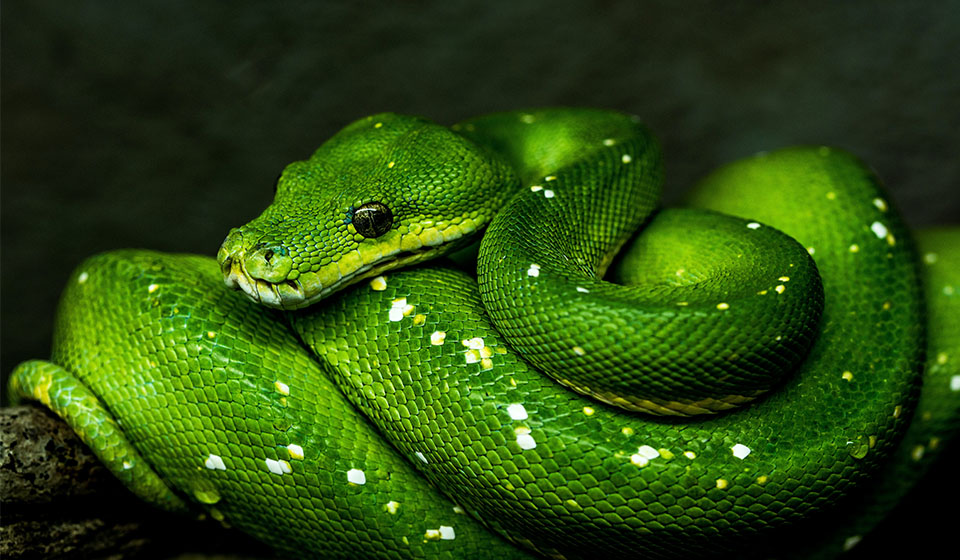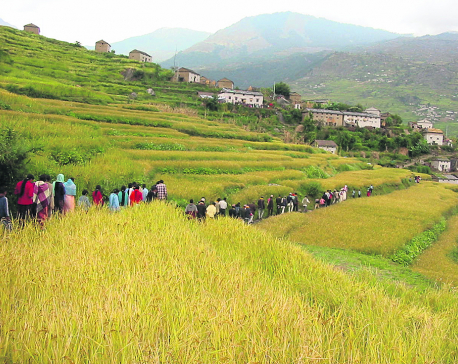
OR
BLOG

More from Author
Snakes have ecological, cultural as well as economic value in our life. They act as both prey and predator in the ecosystem; maintain balance in the food web.
You are probably afraid of snakes, aren’t you? We usually perceive snakes as animals to fear or hate. But, is this just our perception or a reality?
Since ancient times, we find snakes in our religious books and the reptiles are characterized as a divine power. But today’s reality is different where snakes are killed mercilessly and their conservation and safety are questioned. Are we humans not safe with snakes or are snakes are unsafe because of us?
Snakes are the limbless reptiles with their body covered with scales. They are cold-blooded animals which regulate their body temperature by identifying suitable places for their survival. From mountains of the Himalayas to the deepest oceans, more than 3400 species of snakes are found on earth in every continent leaving Antarctica. Most of them are oviparous while some of them are viviparous as well. In Nepal, about 89 species of snakes have been recorded till date. However, the exact species of snakes is still questioned; very limited research work has been done in this sector. Among these species of snakes estimated in Nepal, only 17 species are recognized to be venomous. All other species of snakes are harmless to humans and are non-venomous.
Snakes have ecological, cultural as well as economic value in our life. They act as both prey and predator in the ecosystem; maintain balance in the food web. They are natural pest regulators as well as population controllers. They help farmers by feeding on rodents, controlling the population of rats and mice in the agricultural fields that would otherwise destroy crops. Likewise, snakes are the diet of many birds, small mammals like mongoose etc. On the other hand, snakes, while feared around the world, are also esteemed and celebrated in several cultures. In some cultures, snakes are known to create the world, in others, viewed as good fortune. In Hinduism, they are worshipped in temples as well as in natural habitats by offering milk to them, prayers and incense. They are considered divinity representing eternity as well as materiality, life as well as death, time as well as timelessness. They are popularly associated with both Bishnu and Shiva (Gods). People worship snakes on their special day i.e. Naag Panchami, where mainly the King Cobra and Monocled Cobra are worshiped as Kali naag and Seti naag, respectively. Snakes have not only natural and social roles but also economic importance. They provide entertainment and excitement to people in zoos and as pets.
Despite having crucial importance, snakes are often recognized as foe to humans. Innocent snakes are killed every day just for being in sight of people. Snakes, not only intruding houses, but also seen in the surrounding forest or even in their own habitat, are killed mercilessly by the so-called social animals. The main reason behind their persecution is the fear of snake bites. Snake bite is taken as an invisible neglected crisis in Nepal. In Terai alone, around 3,000 people die of snake bites every year. The World Health Organization has added snake bite to the list of neglected tropical diseases in countries like Nepal. Inadequate awareness on venomous snakes, first aid and medical treatment after bites and limited or no access to medicines and quality care is resulting in high mortality among the people due to snake bites throughout the South Asian region. Besides the persecution, habitat destruction, over- harvesting, disease, invasive species and climate change is threatening the existence of snakes on earth.
As a silver lining, proper awareness and knowledge about the venomous and non-venomous snakes and their behavior, practicable ways of preventing their bites, are necessary to reduce the high number of snake bites in Nepal. Also, knowledge on after-bite procedures and basic first aid is very important in order to reduce snake bite mortality. At the same time, knowing what to do and what not to do after a snake bite is crucial for reducing snake bite morbidity and mortality.
Snakes can be dangerous and not be dangerous at the same time. It depends on how we react and interact with them. Without a fear of danger, a snake will never attack human beings. They can be our friends; it is our choice whether we give a hand forward with a good intent or we raise hands with bad intent which leads the snake to decide the attack. Therefore, it is now up to us and our action that would determine whether snakes are our friends or enemy.
You May Like This

Nepal's wetlands: Everybody's business is nobody's business
KATHMANDU, Nov 17: Wetlands cover around 6 percent of Nepal's surface area and more than 21 ethnic communities rely on... Read More...

Climate change poses extra threats to people and ecosystem
GERMANY, Nov 17: Minister for Population and Environment Mithila Chaudhary has said climate change has been continuously posing additional threats... Read More...

Collaborative effort needed to protect fragile mountain ecosystem
KATHMANDU, Oct 18: A two-day conference on climate change was held in Jumla district with an objective to bring the pressing... Read More...







Just In
- NRB to provide collateral-free loans to foreign employment seekers
- NEB to publish Grade 12 results next week
- Body handover begins; Relatives remain dissatisfied with insurance, compensation amount
- NC defers its plan to join Koshi govt
- NRB to review microfinance loan interest rate
- 134 dead in floods and landslides since onset of monsoon this year
- Mahakali Irrigation Project sees only 22 percent physical progress in 18 years
- Singapore now holds world's most powerful passport; Nepal stays at 98th












Leave A Comment